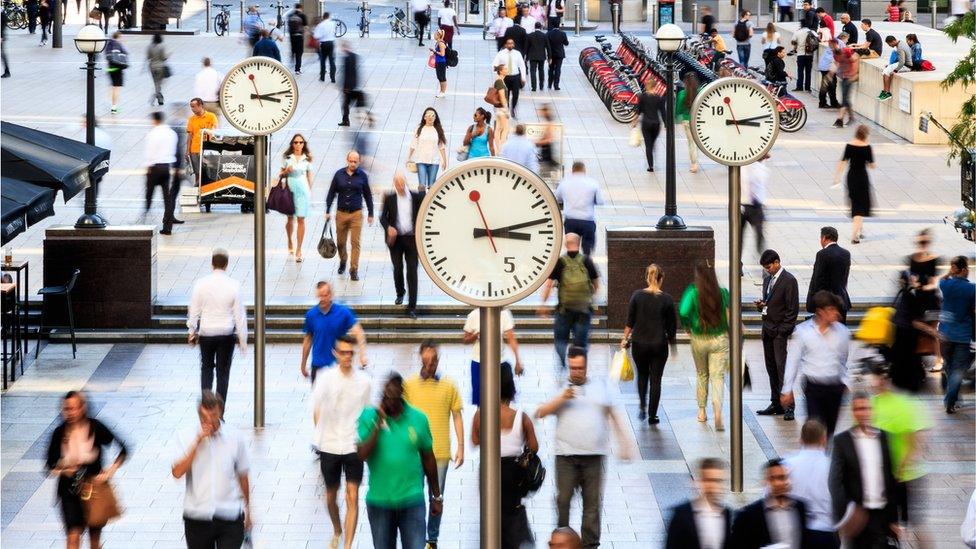Labour would scrap rises in pension age
- Published

A leaked draft of Labour's election manifesto rejects increases in the state pension age above the age of 66.
That would rule out a rise to 67, to be implemented by 2028, as well as further rises to 68 and possibly 69 or 70.
Labour leader Jeremy Corbyn believes people in physically demanding jobs, such as the emergency services, construction and prisons, should not have to work into their late 60s.
But scrapping the changes could cost £30bn by 2050.
The state pension age is already due to rise to 66 for both men and women from 2020, affecting people now in their early 60s and younger.
The leaked manifesto says: "Labour rejects the Conservatives' proposal to increase the state pension age even further."
If the party were in government, it would commission a new review of pension ages, hot on the heels of the official review just completed by the former business leader, John Cridland.
The new review would be "specifically tasked with developing a flexible retirement policy to reflect both the contributions made by people, the wide variations in life expectancy, and the different nature of working lives".
The implication is that people would be permitted to retire at different times and still be able to pick up the state pension in some form.
Cost problems
Mr Corbyn has said before that he would like a system which allows people to work on, but which recognises "that for many people the nature of their work, their health, or their disability may not allow that".
Mr Cridland did examine the problem that in some parts of the country and in some jobs, particularly manual work, life expectancy was lower, so pension claimants were in danger of getting the money for a shorter time, if at all.
But he recommended keeping the same pension age for everyone, saying there was "no effective mechanism that has been tested that would be able to target those with lower life expectancy".
Mr Cridland told ministers that the move to a pension age of 68 should be brought forward to 2037-39, with the possibility that 69 could be pencilled in for 10 years later.
A separate set of calculations from the Government Actuary looked at the possibility of an eventual switch to 70, which would affect young people now in their 20s.
The other question over the Labour Party's thinking would be cost, because the point of the changes to pension ages was to save the taxpayer billions of pounds.
"We already know the planned increases were due to save £30bn, so unwinding these will be very expensive," said Nathan Long from the investment firm, Hargreaves Lansdown.
However, the point of Labour's plan would be to prevent the creation of what it calls a two-tier system, with the better-off able to retire early on private pensions while those with the least savings have to toil for longer.